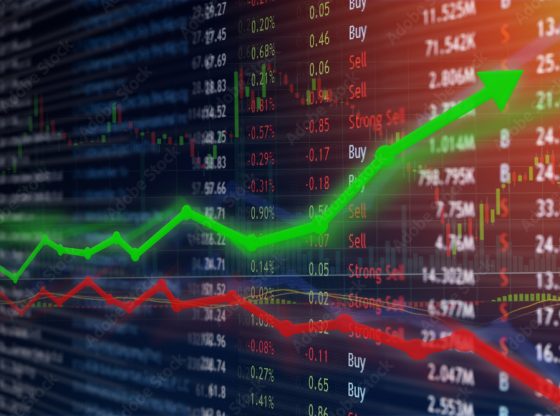Wall Street’s Unexpected Calm Amid Mideast Turmoil
It’s been a bit of a rollercoaster day on Wall Street, with investors grappling with the fallout from recent U.S. military strikes on Iranian nuclear facilities. While there was some initial hesitation, the markets are surprisingly managing to post modest gains as the day goes on.
The Market’s Performance
Looking at the numbers, the Nasdaq Composite is up by 0.5%, and the S&P 500 is also in the green by the same margin. Even the Dow, typically a bit more sedate, has seen gains of 0.4%. Across the S&P 500, it’s mostly good news, with 10 out of 11 sectors showing positive movement. Consumer Discretionary stocks are leading the pack, while Energy has been the weakest performer—which makes a bit of sense given the volatility in oil prices.
Treasury Yields and Oil Markets React
Speaking of volatility, U.S. Treasury yields have actually slipped a bit. The 2-Year Treasury yield is down 5 basis points to 3.85%, and the 10-Year Treasury yield also dropped 5 basis points to 4.32%.
The U.S. launched those targeted military strikes late Saturday night, hitting key Iranian nuclear facilities in Fordow, Natanz, and Isfahan. This naturally ratcheted up tensions in the region and sent shockwaves through global energy markets. Early Monday saw oil prices surge, hitting their highest levels since January, but they’ve since given back some of those gains. Currently, oil is actually lower by 1.2%, hovering around $74.38 a barrel.
The Bigger Picture: Geopolitics and the Market
Deutsche Bank’s Jim Reid pointed out that what this all means for markets really boils down to whether Iran decides to “weaponize” oil, especially by potentially closing the Strait of Hormuz. This is a crucial choke point where over 20% of the world’s oil flows daily. This military action has certainly fueled fears of a wider conflict in the Middle East. In a symbolic move, Iran’s parliament voted Sunday to close the Strait of Hormuz, though the final decision rests with their Supreme National Security Council and Supreme Leader.
Michael Landsberg, Chief Investment Officer at Landsberg Bennett Private Wealth Management, weighed in, noting that the U.S. strike adds another layer of uncertainty to a stock market already grappling with tariffs, earnings, and inflation. He believes that while stocks have largely held up through past conflicts in the Middle East, a more noticeable reaction from geopolitics, particularly any retaliation from Iran, could create “buying opportunities” for those who are prepared.
Economic Data Points
On the economic front, the S&P Global U.S. Composite PMI dipped slightly to 52.8 in June’s flash reading, down from 53.0 in May, though it was still better than the 52.2 consensus. There was also some positive news on the housing front, with U.S. existing home sales rising 0.8% month-over-month to 4.03 million in May, which was stronger than anticipated.
It seems like investors are trying to balance these geopolitical anxieties with underlying economic data. What do you think will be the biggest factor influencing the markets in the coming days?

